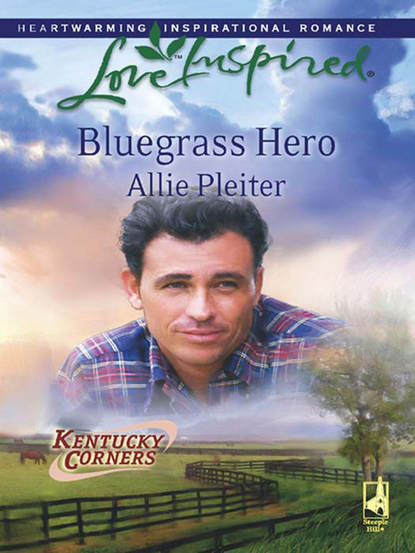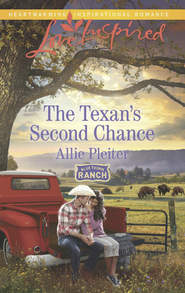По всем вопросам обращайтесь на: info@litportal.ru
(©) 2003-2025.
✖
Bluegrass Hero
Автор
Год написания книги
2019
Настройки чтения
Размер шрифта
Высота строк
Поля
“We got to be back in half an hour,” one of them said. “So we gotta work fast.”
“I want two bars!” a lanky boy who barely looked old enough to drive said from the back of the throng.
“Me, too!” cried another. “I’ll pay ten a piece.”
“Fifteen!” came another shout.
Emily stilled the key and turned to face the crowd. She was glad to count only ten faces—that made things easier. The plan. Work the plan.
“Let me make one thing perfectly clear: you’ll pay the regular price of four dollars, and I’ll sell each of you one bar of soap—no more.” A chorus of moans rose up from the band of soap-seekers. “And I want you to understand clearly, in no uncertain terms, that these soaps will do nothing but get you clean. They’re soap, and nothing else, and I’ll have a bone to pick with any of you that claims otherwise.”
There was a moment of thoughtful silence, and Emily heaved a sigh of relief as she opened up the shop and let them inside. Was it possible that she’d gotten through to them?
“Sure, Ms. Montague,” said the oldest of them, “whatever you say.”
He must have thought he’d been hiding the smirk on his face, but it became instantly obvious to Emily that they hadn’t absorbed a word. They’d still have plunked down twice as much with glee. Well, that couldn’t be her problem. She’d come up with her best possible solution—whether those men learned from it was going to have to be Gil’s—or God’s—problem.
Emily did, in fact, make her midweek income goal by noon. Suddenly the Homestretch Farm men weren’t looking so scary. She was pretty sure, however, that Gil Sorrent would show up sooner or later, and sure enough she was sorting through the noon mail when he skulked through the door. It struck her, as he made his way to the counter, that she’d never seen him happy. Or laughing. She’d seen a smile or two—mostly when he won his point soundly at a town hall meeting—but that didn’t really qualify as happy. She couldn’t remember having a purely social or remotely chatty conversation with him—all of their encounters could only be described as adversarial. In fact, outside of town council business, she’d hardly ever even seen him at all.
“Had a good morning?” It was barely a question, and it became an accusation when he added, “Taking my guys’ money?”
She’d known it was coming, and she had a defense planned. “Now look here, Mr. Sorrent. I don’t claim to know how to run your farm, so I’ll thank you not to tell me how to run my shop. If those grown men come in here asking for soap, then I’ll sell them soap.”
He stared at her, a little surprised.
“I’ve given this a lot of thought,” she continued, emboldened by the fact that he hadn’t yet jumped down her throat. “I think the best thing for all concerned is for that soap to be in their hands. Disappointing them. I turned down their offers to pay all kinds of wild prices. And I made it mighty clear that the soaps would do nothing but remove grime.”
Sorrent swung his weight onto one hip. “And you really think that sunk in?” It wasn’t exactly an agreement, but it was better than the tirade she’d expected.
“Well, not yet.” His eyes narrowed to near slits but she continued anyway. “But if I’d held those soaps back, it’d be as bad as endorsing the rumor that they do something special. You and I both know they do nothing special, so the best thing for everyone is to get those soaps out, used and gone.”
He crossed his arms. “No good can come of this.”
“Nonsense. I think just the opposite. By tonight, you’ll have the cleanest, most pleasant-smelling farmhands you’ve ever had. And any and all rumors of Lord Edmund’s Pirate Soap and its unique abilities will be dead and gone.”
He gave her a look that let her know just what he thought of that prediction. She smiled at him and held her ground. And then he surprised her. “My niece, by the way, went gaga over whatever it was that you picked out for her. Thanks.” He didn’t quite smile, but his expression edged toward a reluctant pleasantness, if you could call it that.
“You’re welcome.”
“Which makes me think you’re a smart businesswoman, so would you mind telling me what you’ve got against ATM machines?”
Ah, so he had read her letter to the town council. “I have nothing against automatic teller machines, when they’re where they belong.”
“And where’s that?”
“In banks. Grocery stores. Theme parks. But not on four different Middleburg street corners. Honestly, it’s a four-block walk to the one at the bank. Now we’ve got to have them mounted on the streets like parking meters?”
“People today don’t carry cash around. We’re in the age of the debit card, Ms. Montague, and we’d best figure that out sooner rather than later.”
“Tell me, do you think people come out here to escape the city, or to see an ATM at every turn? It’s the parking meters and ATMs and bustle that they’re running away from when they come here. They don’t want a drive-through with burgers and fries, they want apple pie and coffee. I’m not against technology, Mr. Sorrent. I just don’t want to be accosted by it on every street corner.”
He turned and looked out the window. “Four is not one on every street corner.”
“We’re not a big town. Ballad Road’s downtown is just a few blocks long. The bank’s smack dab in the middle of it. We can’t expect the average American consumer to walk four blocks? I don’t know about you, but I like to think of my customers as a mite more capable than that.”
“It’s a convenience thing.”
“It’s just as much about town atmosphere as it is convenience. And tell me, have you given any thought to who it is that pockets all the service fees for those ugly little machines? And have you seen them? They’d look like giant metallic mushrooms sprung up on our street.”
She had him there. “I grant you, they’re not very artistic,” he agreed, “but they’re cash machines, not sculpture.”
“Our streetlights are streetlights, but they still look nice and fit the character of our town.” Emily crossed her arms over her chest.
Sorrent shifted his weight to the other hip and scratched his chin. “What if there were only two—one at each end of the town farthest from the bank? And what if I talked Howard into putting you in charge of selecting the design and the mounting?”
She was about to let him know that two ATMs was two too many when he held up a finger and added, “And what if twenty-five percent of all the profits went to the town beautification fund?”
Emily fiddled with her register buttons for a moment as Sorrent watched her. She’d lost a sale last week when the couple buying dish towels didn’t have enough cash and didn’t want to use their credit card. She’d told them where the ATM was, and they said they’d walk down there and come back for the towels, but they never did.
And she’d get to choose the design. Not Howard Epson, who couldn’t be counted on to choose red paint for a barn, much less a piece of public structure. And Howard would be forced to donate one quarter of his profits to the beautification fund—the fund that paid the extra money for those particularly lovely streetlights.
Choose your battles, Emily’s mother always said. Know what hill you’re willing to die on and why. Sometimes your goals planned your solution, and sometimes your solution planned your goals.
“Mr. Sorrent, you’ve got yourself a deal.”
Chapter Five
Gil walked through his bunkhouse that afternoon, shaking his head. Of the room’s twelve bunks, ten of them had those yellow bags from Emily Montague’s shop sitting on or near them.
He sighed. He bought the guys perfectly suitable soap—he bought the guys lots of things, actually. It was part of his long uphill climb to get them to realize they mattered. The first step to making people think they have potential is to treat them as if they have potential. Gil knew that it was up to him to get this idea through to them, and he did, in a thousand small ways over the course of the months he had with them.
Horses were one of the best parts of his program. Teaching the men to treat the horses with kindness and respect was a roundabout way of teaching them to respect themselves. Horses were patient listeners and nonjudgmental companions, so they were a good place to start when learning to care about something. They put up with most small errors but let you know when you’d made a big mistake. One of Gil’s first residents had jokingly called the horses “stunt people”—and it wasn’t that far off. Lots of days Gil prayed for as much patience and wisdom as his horses had.
A horse would have enough sense to steer clear of Pirate Soap.
Gil walked by Mark’s bunk and grimaced at the bar of Pirate Soap he saw lying there. Mark had been one of the hardest cases he’d ever had. King Lear, the horse Mark cared for, had been the first thing bigger than Mark that hadn’t beat him up. That tough horse and that tough guy had wrestled themselves into an understanding of each other over the months. Gil hoped all that work wouldn’t come undone because of some dumb soap gimmick. As far as he’d come, Mark still kept an eye peeled for the shortcut, the easy out. He had a soft spot for Mark because he saw so much of his former self in the young man.
Not that he could admit to anything openly. Human-to-human caring rarely showed up between these guys—that’s what made caring for horses such a good place to begin learning. Healthy relationships were like a foreign language to them: combat, defiance and violence were their mother tongues. So “caring” started with the horses, but eventually Gil added a human element, buying a guy a new T-shirt or his favorite pizza. These became footholds as the men discovered how people cared for each other.
He’d never have paid for their current taste in soap, though. The bunkhouse showers would probably smell worse than Emily Montague’s bath shop come sundown. If it wasn’t January, he’d have told Ethan to set up dinner outside.
And there was Friday night. That would be a fiasco for sure. He’d taken them to last Friday’s church social in response to a correctional officer’s suggestion that they get more social interaction. Oh, they’d got social interaction that night, but he didn’t think that was what the County had in mind. He’d bought a block of tickets to the community theater musical for this Friday night. It had seemed a safe enough idea at the time, but he was starting to think that unleashing those guys anywhere near town might be a bad idea. The play was The Music Man though, where a good deal of swindling happened, so it might serve as a timely moral lesson.
Gil took one last look around the bunkhouse, thinking he ought to just scoop up the soap and throw it out. Gratifying as it might feel, though, it wouldn’t help. He had to respect their decisions if he expected them to respect his. And as much as he hated to consider it, Emily Montague might be right about some lessons only being learned the hard way. Maybe now was the best time to teach them that a woman valued how a man treated her, not how he spiced up the air between them.
He picked up the bag on Larry’s bed and sniffed at it. It was awful. Emily Montague’d thought highly enough of it, but she was a woman given to that kind of thing. He’d seen that “pleasant enough” scent do something to her, make her eyes get a funny, faraway look. She’d certainly never looked that way during a council meeting. No, that was a face he never saw across the table at town hall.
Gil hit the power button to open the windows in the farm van as they drove into town Friday night. This had better be worth it.











